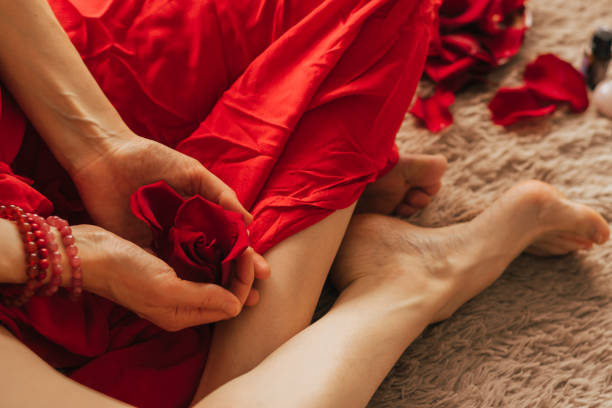Menstrual Ritual:-How the ‘‘FIRST PERIOD’’ is Celebrated

Menstruation is always personal and not everyone is okay with talking about it, hence the taboo or the hush-hush that surrounds it. One of the most significant aspects of menstruation is that it marks the transition from girlhood to womanhood. In the old days, this transition was marked by a period of celebration as the elders claimed that the girl is now as fertile as nature. The first period usually invites a whirlpool of emotions and a rollercoaster of bodily changes. At the tender teen ages, with no assurance of proper comprehensive sexuality education, there is only so much that the mind can fathom.
Karnataka

The Ritushuddhi or Ritu Kala Samskara is the most commonly known ceremony that celebrates a girl’s transition to womanhood. This is also when she receives her very first saree. Commonly known as the ‘half saree function, a girl’s first bleed is celebrated in Karnataka with much grandeur. After a thorough bath and cleansing, the girl is gifted fruits, sarees, and jewelry items. It is a women-only ceremony, female participants shower their blessings and celebrate her stepping into womanhood.
Tamil Nadus

Manjal Neerattu Vizha is a turmeric bathing ceremony celebrated by women for nine days. It acknowledges a girl’s coming-of-age when she gets her first period. The girl puts on a beautiful saree and gold jewellery. “It is a grand affair. Invitation cards are distributed among relatives, friends and neighbours. Some people go to the extent of erecting hoardings and boards with the huge cut-out of the girl.”
Andhra Pradesh

‘Peddamanishi Pandaga’ in parts of Andhra Pradesh and Telangana says Vijayalakshmi TG who hails from Chittoor in Andhra Pradesh.It is noted that the celebration lasts for 5-7 days wherein the girl is kept in a separate hut with separate mattresses and utensils, and fed a nutritious diet. On her last day of the menstrual cycle, she is given a bath ‘mangal snan’ by five women, excluding her mother, and dressed in a silk saree and jewels, usually gifted by the girl’s uncle.
Assam

Tuloni Biya is an Assamese tradition that celebrates a girl’s menarche. It is safe to say that the rituals performed are similar to a wedding ceremony, except the girl is married to a banana plant instead of a groom. Here the girl is restricted to perform any activities and isolated in a room for 5-7 days.
Impacts of Menstruation Rituals
Menstruation rituals have both negative and positive impact on the woman who menstruates. During menstruation, the girl becomes very weak and needs proper rest. It is because of the rituals that she is considered polluted and she cannot touch anything, nor perform any work. This can be considered as ‘positive’ as it is a way which allows a girl or woman complete rest with social sanction. However, all these associated rituals imposed during menstruation can be a mental burden and have a ‘negative’ impact, as they cannot attend any religious ceremonies or functions which might
Make the women feel good.
Do you remember your first period? How aware were you of it?